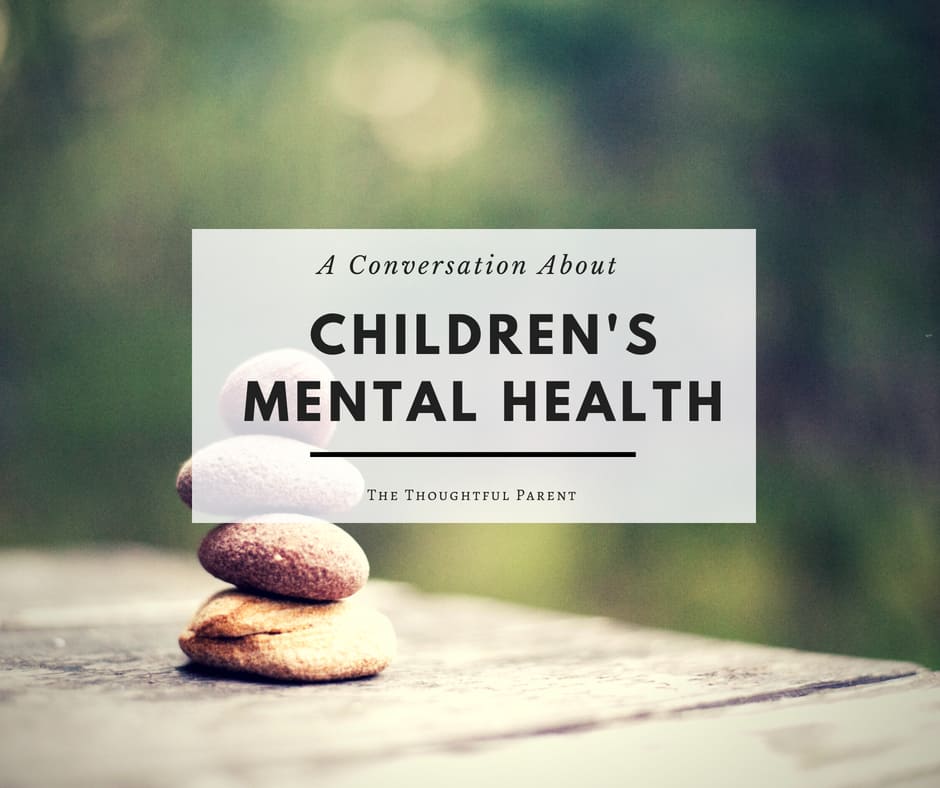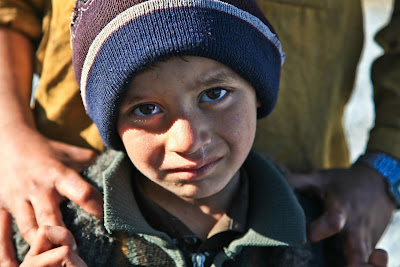In the past week, 2 major celebrities have passed away as a result of suicide. Yet, in our country, mental illness is still considered a taboo topic in many circles. It’s important to be aware and educated about mental illness at all stages of life, starting with our kids.
While the frequency of conversation surrounding mental illness is trending upward, there is still work to be done. It’s vital to ensure that all individuals who are diagnosed with a mental disorder have open lines of communication and resources available. May is Mental Health Awareness month, and children and adolescents are largely impacted by mental health disorders. According to the National Institute of Mental Health, 50 percent of all lifetime cases of mental health disorders begin by the age of 14. This startling statistic can lead us to ask, what do we do with this information?
The Unique Face of Mental Illness
First, we must acknowledge that each person diagnosed with a mental illness has their own unique situation. Each individual has their own personal set of circumstances that has lead to a diagnosis. There is not a, “one size fits all” solution when it comes to mental illness and how to help those affected by it. We must continue to facilitate dialogue in various aspects of mental health, and talk about the countless scenarios that our kids may be up against. Mental Health Month raises awareness around trauma, and the impact it can have on the wellbeing of children, families, and the overall community we live in. While mental health disorders can stem from a variety of different causes, we want to spotlight trauma, and how it can influence the state of mental well-being in children.
Related reading: The Hidden Way that Kids Learn Empathy (and how parents can help)
Trauma and Mental Health
Often times, many people don’t consider the state of children’s mental health. This is alarming as children as young as 18 months old can experience a traumatic event and go on to have later behavioral and psychological problems. From being exposed to crime, violence, abuse, or even the loss of a loved one, trauma can stem from a lot of different situations. We’re looking more closely into the impact that trauma can have on the mental state of children and teens.
If you are concerned that your child has been exposed to a traumatic event, specialists have identified specific behaviors to be on the lookout for. If a child you know has recently experienced a traumatic event:
- Separation anxiety or clinginess toward teachers or caregivers
- Changes in appetite
- Decreased interest in and/or withdrawal from friends or family and normal activities
- Over- or under-reaction to physical contact, sudden movements, and sounds
- Angry outbursts and/or aggression
- More frequent complaints of headaches, stomachaches, or fatigue
- Repeatedly recreating the event through comments, drawings, or activity
- Emotional “numbing,” or expressing no feelings at all about the event
Although trauma is a common underlying cause of mental health issues in children, it is not the only cause. Even infants have a full mental life and are constantly making sense of their interactions with caregivers. As this wonderful article by Lisa Sunbury describes, experiments with babies have shown that they are careful observers of their caregivers’ emotions. Although they don’t have the emotional skills to understand adult emotions, they often react when they see withdrawal or sadness in their caregivers.
This video illustrates the classic “still face” experiment done to examine how babies respond to a lack of response from a caregiver. If the relationship is “repaired” as in seen in the video, the bond remains, however, if babies experience repreated withdrawal, impacts on their mental health can be seen.
Get Informed
Identifying a problem and ultimately understanding a diagnosis can be overwhelming. This rings especially true when trying to grasp the diagnosis in a child. Where do you start? This is a frequent question that carries a lot of weight. It can be hard to collect your thoughts and know what to ask. Jumo Health is an online suite of resources to educate and empower those dealing with diagnoses. Available are free discussion guide downloads to help steer conversations with your doctor about diagnosis. Depression and Anxiety are just two examples of topics that have a guide available.
In addition, Jumo Connect offers a series of comics and podcasts that explain different diseases, disorders, and conditions. Some of the most relevant include the “Mental Health: Anxiety and Depression podcast.” This follows Gianna, a high school junior who has lived experience of depression and anxiety. It’s a great resource to help kids and teens connect to someone who may be experiencing the same struggles and difficulties in life.
Related reading: National Children’s Mental Health Awareness Day
Resources for Children’s Mental Health
Another great organization is ZERO TO THREE. They work to ensure that babies and toddlers benefit from early connections that are critical to their well being and development. Children can be resilient when it comes to trauma, but they typically process events different than adults. ZERO TO THREE has developed a great parenting resource on building resilience. It is designed to teach how you can help infants and toddlers to learn to cope with adversity.
Recognizing resilience at four different levels: the individual, the family, the school and caregiving systems, and the larger community. Parents can build their child’s resilience on a daily basis by teaching self-care, emphasizing the positive, building a strong parent-child bond, reading together, encouraging social skills, maintaining a daily routine, nurturing self-esteem, and practicing reflection.






Leave a Reply